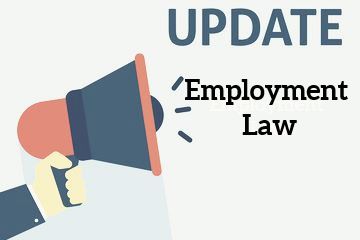I am Being “Bullied” at Work. Do I Have Any Rights? Is There Anything I Can Do to Stop the Bullying?

Workplace bullying
comes in the form of:
- Verbal abuse.
- Offensive behaviors that are threatening,
humiliating or intimidating. - Work interference or sabotage that prevents
work from getting done.
Workplace bullying can be by one person or by a “mob” (this
generally includes peers of the offender or those that think that assisting in
the bullying will gain them favor with the perpetrator).
Generally, “bullies” in the workplace are in high
power positions or have the ability to influence working conditions for the
employee. In most instances it is a supervisor and subordinate relation.
However, it does not have to be a person in a power position that bullies
another employee. Bullies can be the employee’s peer who is trying to gain
favor, an employee who’s work may be subpar, an employee who feels insignificant
or valueless. Bullies take actions to make others feel bad in the attempt to
make themselves seem more important.
Some examples of common tactics used by workplace bullies are:
- Falsely accusing someone of errors the person
didn’t actually make. - Hostilely staring at an employee or nonverbal
intimidation. - Unjustly discounting the person’s thoughts or
feelings in front of others. - Using the “silent treatment.” Refusing to
acknowledge the person or say hello or goodbye. - Making up rules for specific people.
- Disregarding and discrediting satisfactory
work. - Harshly and constantly criticizing the person.
- Starting, or failing to stop, destructive
rumors or gossip about the person. - Encouraging people to turn against the person
being tormented. - Singling out and isolating one person from
other co-workers, either socially or physically. - Yelling, screaming or throwing tantrums in
front of other colleagues to humiliate someone.
Donath Law, LLC has
experience raising and resolving situations in which employees are being
bullied in the workplace. While the laws have not been passed to protect most
targets of bullying, there are creative alternatives to assist employees in
protecting their employment and fighting back against bullies. Bullying may
also fall under laws, among others, that protect against discrimination, sexual harassment, retaliation and breach of contract.
Some employees being
bullied feel they have no option but to resign from their job. There are other options.
Don’t continue to be a
victim! For more information or to find out how we can better assist you with
your personal situation, contact Sheree Donath.







